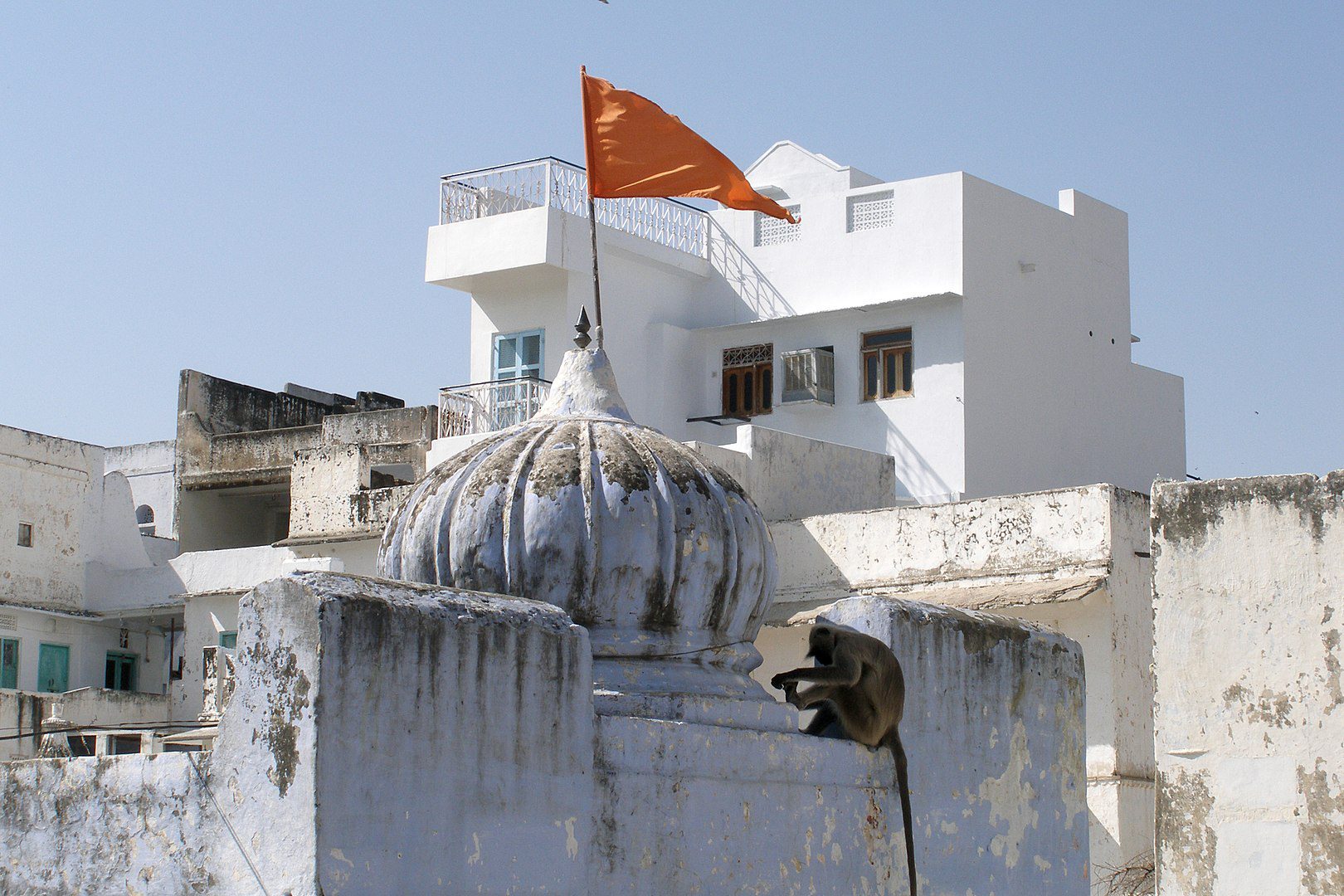
Pushkar, Ajmer, Rajasthan, India Photo sourced from Wikimedia
45 Fun Facts about India
Most countries throughout the world treat different things in different ways and have different cultures which makes them unique in their ways. Some have various facts that are funny enough and India as a country is not an exception.
The diverse landscape, colorful festivals, and spicy-hot cuisine are already reasons enough to pack your bags to visit the country’s cities like Mumbai or Varanasi. Let’s take a look at some of the fun facts about India;
1. Cows are considered sacred
One of the very top facts about India is that cows are sacred to them, which simply means that if you are a lover of beef or any cow product, then you need to be very cautious as you visit India. The constitution of India has a set of rules which protects cows.
This is because the culture of India takes cows as divine animals which need to be protected at all costs. This makes killing a cow a crime. Even on crowded city streets, cows have the liberty to roam where they please without fear of being harassed by humans.
2. India is the wettest inhabited place on Earth

Living Root Bridge, near Mawlynnong village, Meghalaya, India Photo sourced from Wikimedia
Another top fact about this amazing country full of cultures is that it is home to a village known as Meghalaya village which has won the Guinness world record title for the wettest place on Earth, with about 11,873 milliliters of rain annually.
The monsoon season lasts six months, so make sure you pack an umbrella! Carrying heavy jackets is not an option as you visit India. It sometimes becomes so cold when heavy rains fall in this place.
3. India is one of the most religious countries in the world

Pushkar, Ajmer, Rajasthan, India Photo sourced from Wikimedia
Another top fact about India is that India is one of the most religious countries in the world and has over 300,000 mosques and over 2 million Hindu temples with about 15% of India’s population being Muslim while 79.8% of India’s Hindu population and the rest falling under the other different religions.
The mosques across the country range from small village buildings to immense famous ones, like the Mecca Masjid in Hyderabad or the Jamal Masjid in New Delhi. The same can be said about India’s Hindu temples, which surpass two million. Just the holy city of Varanasi has over 23,000 temples. It is safe to say India is the land of temples!
4. Chenab Bridge is the highest rail bridge in the world
The country is not only famous for being a religious place and having many religious monuments which are famous but also known for having other important landmarks like the Chenab Bridge which is the highest rail bridge in the world.
The jaw-dropping bridge spanning the Chenab River in Jammu is 1,178 feet above the water, which makes it one of the most feared places more so for a section of people with a phobia of heights. So, if you’re afraid of heights, you might want to skip this one!
5. Rajasthan has a Temple of Rats

Rats in the Temple of Karni Mata Temple in Deshnoke Photo sourced from Wikimedia
Another fun fact about India is that the country is home to the first temple full of rats which is an amazing fact considering rats might not be the first species you think of when it comes to worship. The temple is located in Rajasthan and is dedicated to rats.
This simply means there is no other way than to respect and honor them whenever you visit this place. The temple is home to thousands of rats who call this temple home. It is one of the country’s most unique attractions.
6. India is home to the world’s highest motorable road
Another fun fact is that India is home to the world’s highest motorable road ever made. The road known as Ladakh road is the highest motorable road in the world at over 19,300 feet, which also makes it one of the coldest places in the world.
The road is also only passable in a selected season which is from June to September when it is hot in the country. You are also needed to pack a warm jacket before making this adventure.
7. Home of a Mysterious Lake or Skeleton Lake

Human Skeletons in Roopkund Lake Photo sourced from Wikimedia
Another top fact about India is that it is home to Roopkund known locally as Mysterious Lake or Skeleton Lake which is famous for the huge number of human skeletons found in the lake and surrounding areas.
Located in the Himalayas at about 16,470 feet, the glacial Lake Roopkund is a famous trekking destination. It is thought that the skeletons are the remains of people from the 9th century who perished during a severe hail storm.
Read more about the mysterious lake here
8. The popular game “Snakes and Ladders” originated in India
The popular game “Snakes and Ladders” originated in India and was originally known as Moksha Patam. Now sold across the world (sometimes adapted to “shoots and ladders”), traces its roots back to India.
It was first created to teach morals and lessons about karma in a way that young children would understand and remember. This game is played between two players or two groups of people and is played on a game board with numbered, gridded squares.
9. India was the first country to mine diamonds
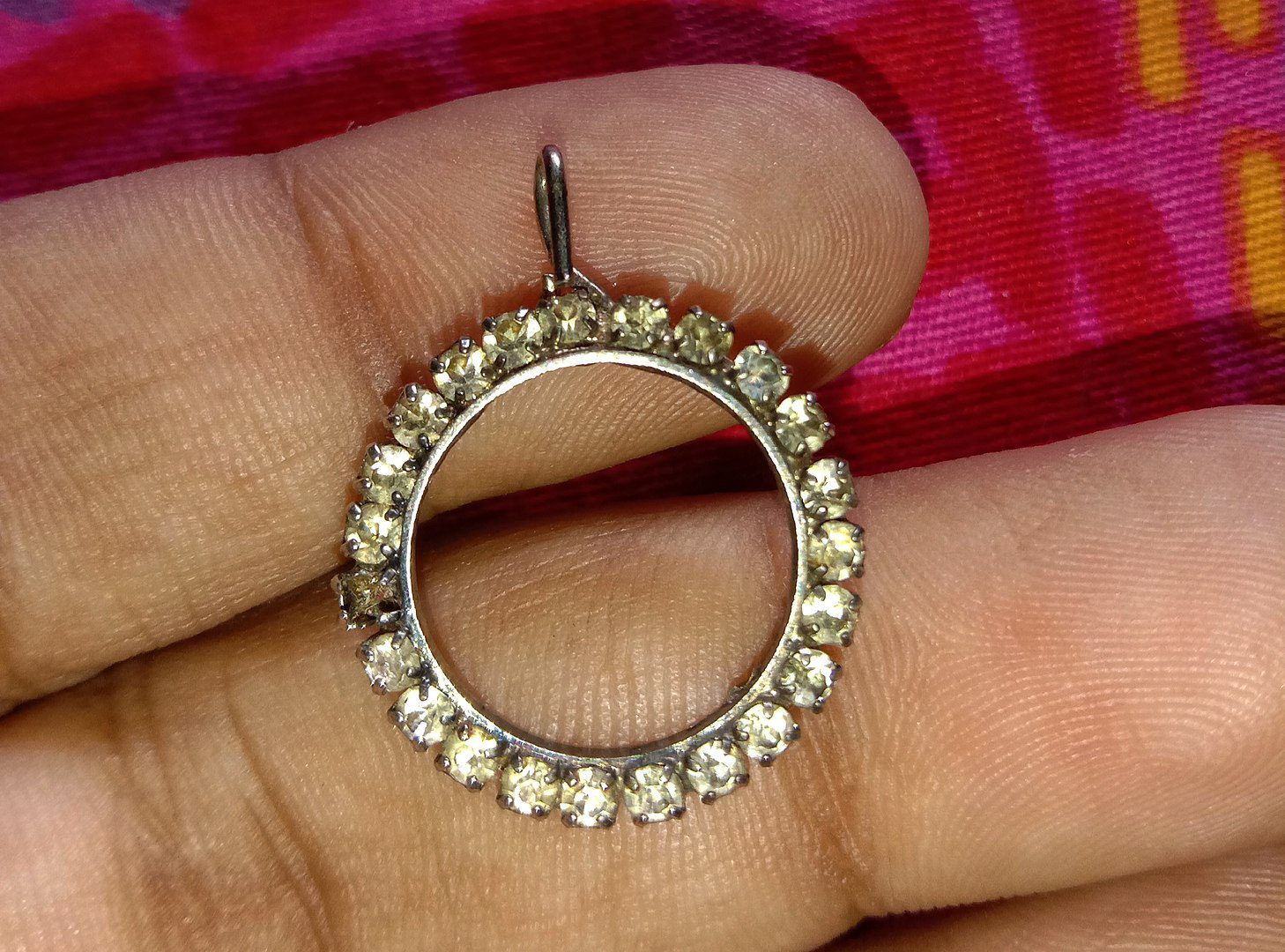
A silver earring with 23 original small cut diamonds in Kolkata, India Photo sourced from Wikimedia
Another one of the top facts about India is that it was the first country in the world to mine diamonds and until diamonds were discovered in Brazil in 1730 it was the world’s only source of diamonds.
Located in the city of Golconda presently known as Hyderabad, the original diamonds were found in the Krishna River Delta. From the 4th century BC for around 1,000 years, it was the only place where diamonds were being mined.
10. India’s Hinduism is the oldest religion in the world
One of India’s top religions Hinduism is believed to be the world’s oldest religion in the world with documents dating back as early as 5,500 BCE. Though there is no known founder of Hinduism, and no one cares to know who started Hinduism since Hinduism is a way of life.
Currently, Hinduism is the third-largest religion in the world, serving more than 1 billion people. Regarding gods, Hinduism is not pure polytheism. Hindus believe in one god, Brahma, who is manifested in thousands of other gods. Along with Brahma as the main god, two other gods make up The Trimurti.
11. India has 22 recognized languages
Another fun fact about India is that while other small countries like Kenya boast a lot of tribes with numerous languages spoken, India only has 22 recognized languages. The numerous languages spoken across India include Santali, Kashmiri, Bengali, Tamil, and Urdu. However, the official languages are English and Hindi.
India also has the world’s second-largest population of English speakers (first is the United States), since most Indians speak their regional language as well as English for easier communication. Sanskrit is considered the oldest language in the world, the “mother of all languages.” Every Hindu book is written in Sanskrit, and it is said that Sanskrit is the language of the demi-Gods.
12. Ranked the second-most populous country in the world
India is also ranked the second most populous country in the world with a population of 1.422 billion people coming only second to China, with a population of 1.426 billion and the number keeps climbing.
It’s estimated that by the year 2050, India will have surpassed China to become the most populated country in the world. This is simply because India has a historic lack of family planning services and more than half their population is around 25 years old.
13. Most Indians eat with only their fingers
Another fun fact about India is that it’s customary in India to eat food with your fingers, including rice, sauces, meats, and vegetables. Some people argue that to truly enjoy an authentic Indian curry, it’s a requirement to eat the dish with your hands.
Though it is not prohibited to use a fork, knife, or spoon, actually it is interesting using fingers. While it takes time to master the art of bringing food to your mouth with just your fingers, the ritual has its goodness.
14. India is home to villages with no locks and doors
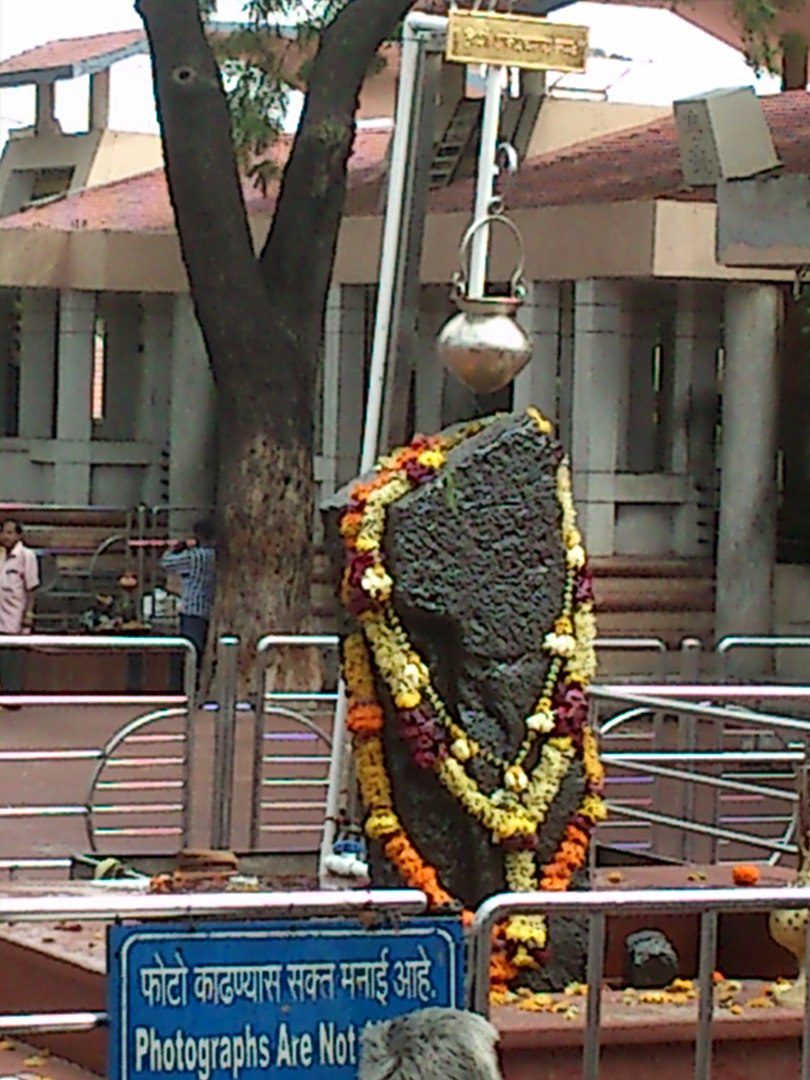
Shani Shingnapur Photo sourced from Wikimedia
Another great fact about India is that it is home to the village of Shani Shingnapur which is famous for not having a door or lock on a single house. What is more surprising about this place, however, is that the village has not witnessed any sign of theft or a criminal act for almost 400 years.
Many people think that the shared vulnerability has created a neighborly trust between the residents, which has formed a protection stronger than a deadbolt or heavy gate. The village barred anyone from ever having a lock because of the relevance of the locks to their deity.
15. Indian food has become one of the most widespread cuisines in the world
Over the years Indian culture has continued to spread through the globe at a very high rate and Indian food has played a key part. It continues to gain popularity with many arguing that authentic flavor and spice are lost in many of the restaurants outside of India itself.
Starting from sweet Samosas to Dal Soup to curry to tandoori chicken to tandoori fish to biryani and masala, and many more, Indian dishes strike a delicate balance between sweet and spicy and therefore tempting many.
16. India has the highest population of vegetarians
Vegetarian is recommended by the medics it’s estimated that between 15% and 30% of India’s population follow a strict vegetarian diet, while many others will only consume fish and no land animals.
Vegetarianism is so widely spread that even western food chains like KFC provide a vegetarian menu for restaurant patrons. India’s love and respect for animals also make it hard for those who love meat.
17. India is one of the countries with the highest number of official holidays in a calendar year
India is one of the countries with the greatest number of official holidays in a calendar year for example in 2019, India recorded 26 official holidays, including Independence Day, Deepavali, Holi, and Christmas.
The wide range of celebrations comes from the fact that so many different cultural groups are blended into the Indian population, leading to a plethora of holidays and festivals. This also makes the country one of the countries with the most respect for different cultures.
18. Holi is much more than a colorful powder festival

The projected over 80,000 attendants at the 2013 Festival of Colors Temple Photo sourced from Wikimedia
India has a festival called Holi, also known as the festival of colors, which is a popular Hindu spring festival celebrated across India and Nepal. Holi’s name comes from “Holika”, the sister of demon King “Hiranyakashyap,” and it signifies the victory of good over evil.
It also marks the end of the winter season, welcoming spring. While the festival is well known for its colorful powders, water also is a big part of the event as many people use water balloons to engage in water fights with family and friends.
19. The world’s largest sundial is located in Indias
Another fun fact about India is that it is home to the town of Jaipur which in turn is home to the world’s largest sundial in the world, which towers 27 meters (90 feet) tall. The sundial is constructed from beautiful polished stone to create an awe-inspiring work of architecture.
The sundial has been listed as a UNESCO World Heritage Site. Every year, it attracts thousands of visitors, who come to witness the shadow moving at about six centimeters per minute. It is one of the best things witnessed in this country.
20. The Taj Mahal is slowly changing its color

The Taj Mahal Photo sourced from Wikimedia
One of the other facts about India is that one of its most iconic landmarks the majestic white walls of the Taj Mahal which has been one of the best attractions for visitors visiting India is losing its sweet colors by the day.
This is due to pollution and contaminants in the air. The marble walls are slowly transforming from white into a yellow color. This is one of the concerns but still, the Taj Mahal remains one of the country’s top landmarks also including the Agra Fort and Baby Taj.
Read more about the Taj Mahal here
21. During World War II, the Taj Mahal was disguised as a bamboo stockpile
Perhaps one of the funniest facts here is that to protect the Taj Mahal building during World War II, the entire palace was covered with bamboo scaffolding, completely hiding the true structure from bomber planes flying overhead.
The citizens and the government of India really love this iconic building and even if the color is changing, the Taj Mahal is still one of the most beloved and important monuments in the country to this day.
22. In some places in India, Coke and Pepsi are used as pesticides
One of the other top and fun facts about India is that while most of us know coke and Pepsi as soft drinks, there are some places in India where coke and Pepsi are used as Pesticides which is one of the things that can amaze anyone witnessing it.
In the Chhattisgarh state of India, which is one of the world’s largest rice-producing areas, farmers began to spray their fields with Coke and Pepsi products, since it was cheaper than traditional pesticides and seemed to work just as well.
23. North Sentinel Island is one of the last “untouched” places on Earth

North Sentinel Island Photo sourced from Wikimedia
Did you know that the Indian government has prohibited anyone from going within three miles of North Sentinel Island, home of the Sentinelese people? North Sentinel Island is one of the last “untouched” places on Earth.
In 1991, the anthropologist Madhumala Chattopadhyay had several peaceful encounters with the Sentinelese, but in subsequent years, the people made it very clear (sometimes violently) that they did not want to be disturbed. It is now considered one of the last places untouched by the outside world.
Read more about India in Top 10 Fun Facts about India
24. The Kumbh Mela is visible from space
The other fun fact about India is that the Kumbh Mela is one of the most important festivals and pilgrimage sites and the largest gathering on Earth. The number of people attending the festival is so large that the crowd is visible in satellite photos taken from space.
While a celebration takes place each year, there is a festival of greater significance at four-year and twelve-year intervals. This festival is of great significance to the Indian people from all walks of life who come to celebrate it.
25. India has one of the lowest divorce rates in the world
One of the most famous facts about India is that it has the lowest divorce rates in the whole of the world. According to statistics, the divorce rate in India is about 1 out of every 100 marriages, making it much lower than most countries.
This may be partly due to cultural customs and the fact that arranged marriages still occur in India. It also may be partly because the country is rich in culture and traditions and follow customary rules to the letter.
26. Frogs are married off to each other
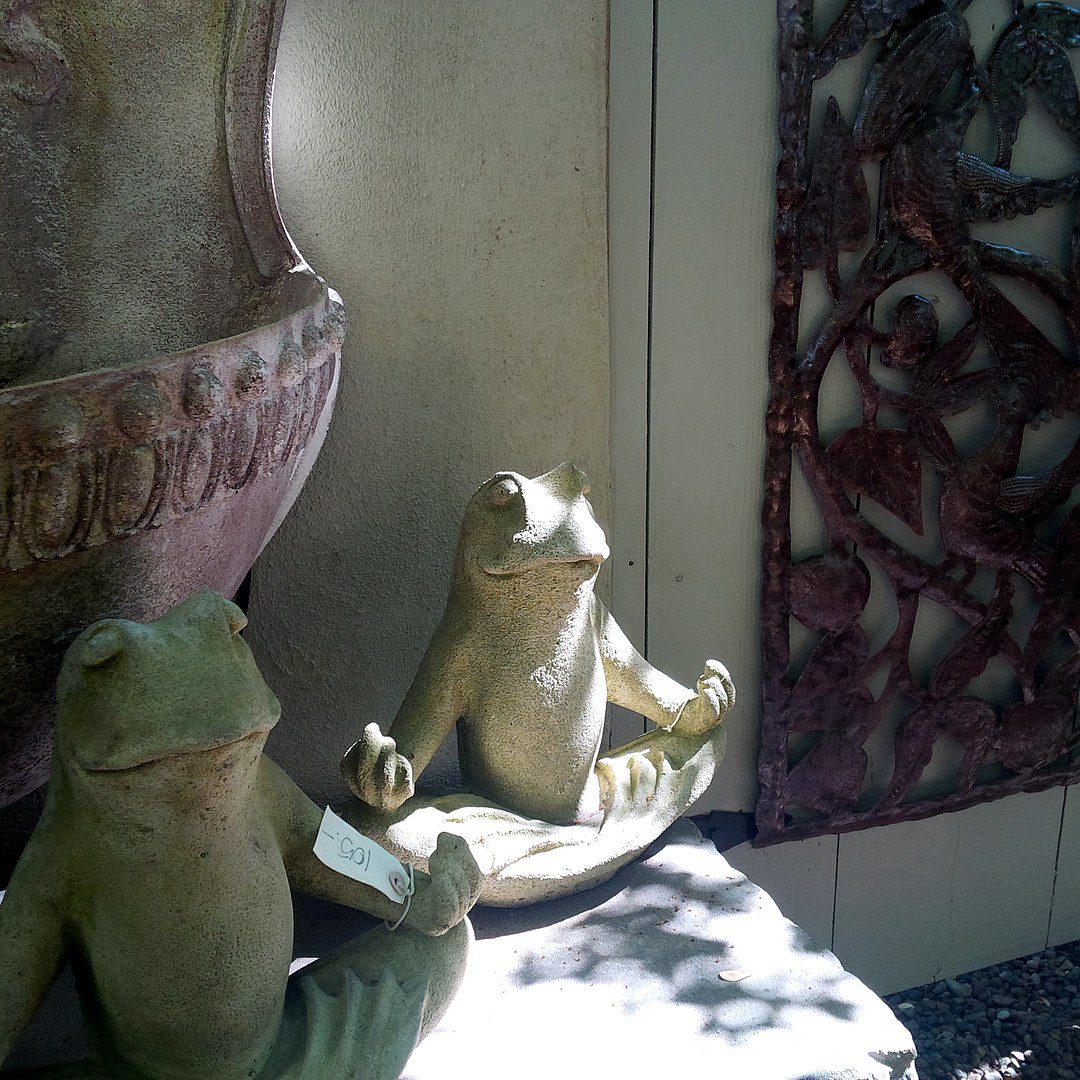
A photo of Frogs Photo sourced from Wikimedia
Another fun fact about this iconic country is the fact that frogs like human beings are married off, well, at least in a village called Varanasi. Varanasi goes back to its old traditional beliefs and rituals, so when the rains are delayed, the frogs there are caught and married to each other to please the rain gods.
This site has been applauded by most people and India as a country takes its culture and customs seriously because one may be disciplined for going against these ways. The frogs in this case are then let go to appease the gods.
27. The Hindu calendar has six seasons
Unlike most countries of the world which recognize four seasons in a calendar year, the Indian culture recognizes and follows a six-season calendar, recognizing spring, summer, monsoon, autumn, prewinter, and winter.
The six seasons or Ritu are named Vasant Ritu or spring, Grishma Ritu or summer, Varsha Ritu or Monsoon, Sharad Ritu or Autumn, Hemant Ritu or pre-winter, and Shishir/Shita Ritu or winter.S several festivals and celebrations go hand in hand with those seasons.
28. Varanasi is the most ancient surviving city in the world

Varanasi, India as seen from Ganga river Photo sourced from Wikimedia
The country is home to one of the world’s oldest living cities known as the Varanasi, also known as Banaras or Kashi. It is believed that this place was once the home of Lord Shiva and Goddess Parvati. As Mark Twain puts it, Varanasi is “older than history, older than tradition, older even than legend, and looks twice as old as all of them put together.”
This city’s connection with eternity doesn’t end here, for it is believed that the person who inhales his final breath here actually attains salvation. This is why so many devout Hindus pilgrimage to Varanasi to spend their last days on Earth. At the same time, many other devotees flock to the city throughout the year to experience its divine touch.
29. India is also the Origin of Ayurveda and Yoga
In addition to being well known as the holiest city in India, India’s Varanasi is also known as the birthplace of Ayurveda and Yoga and their ancient healing systems. The two doctrines are not far from each other and both grew from Vedas based on centuries-old storytelling knowledge.
The term Ayurveda is derived from the Sanskrit words Ayur which means life and Veda which means life, Yoga is a spiritual discipline that is based on an extremely subtle science that concentrates on bringing harmony between mind and body.
30. India is divided into 28 states
Another top and fun fact are that the country is divided into 28 states. Though initially 29 states until the union territories of Jammu and Kashmir formed out of the state of Jammu and Kashmir and Ladakh was made into a separate union territory and split off from Jammu and Kashmir in 2019.
Not many foreigners realize that India is subdivided into states. Some of these states – like Assam, Kashmir, and Goa – are more easily recognized thanks to products like Assam tea, Kashmir silk, or the popular tourist destinations in Goa.
31. Tea is the national beverage of India
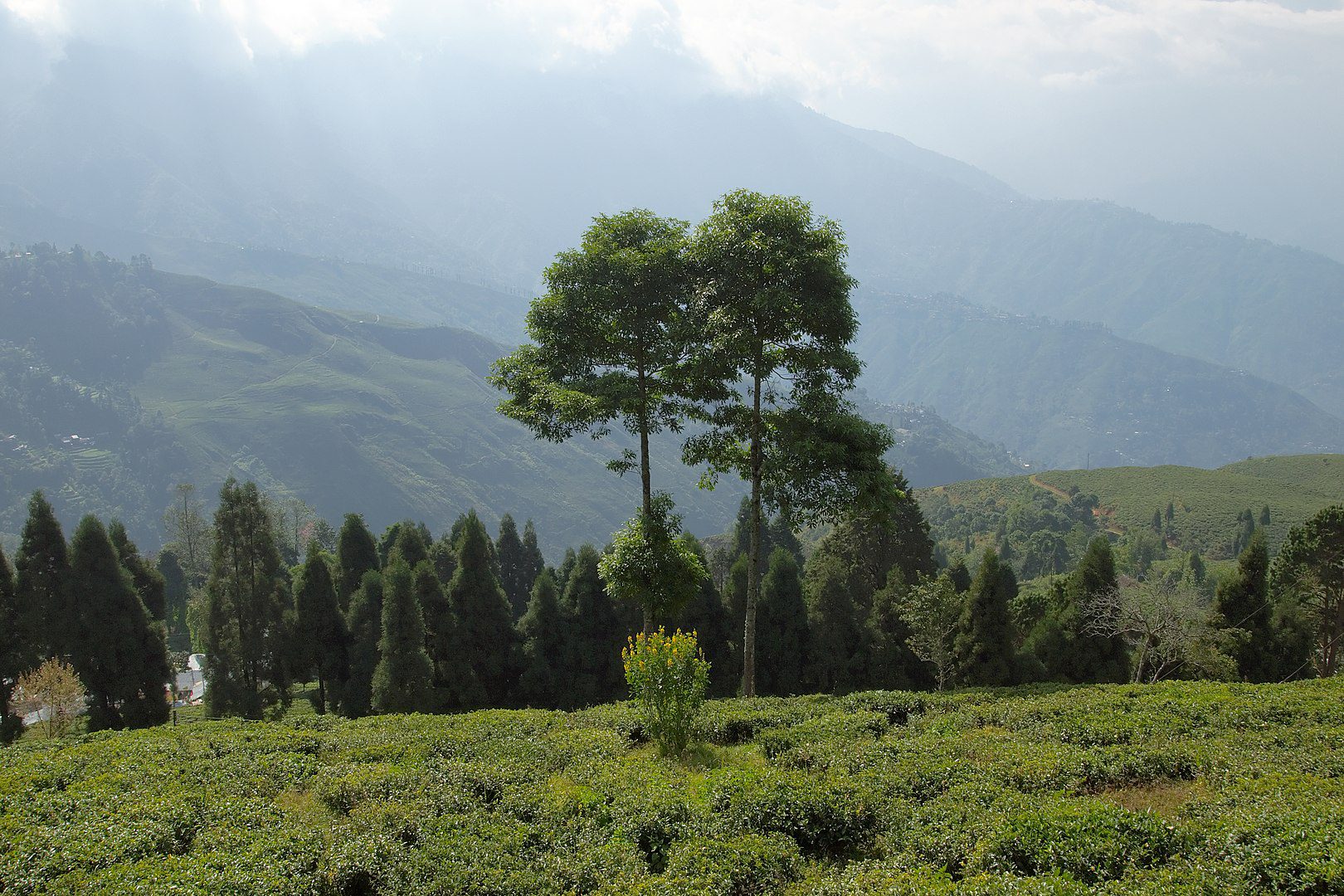
Tea plantations in Darjeeling, West Bengal, India Photo by Vyacheslav Argenberg Wikimedia
As we know Indians love tea; the beverage is served throughout the day and with meals in every household. India is the second-largest producer of tea in the world, following closely behind China.
Tea was introduced to India by the British in the 19th century to overcome the monopoly of having only Chinese productions. The country has since utilized the resources to be among the best producers of tea in the world.
32. Around 70% of the world’s spices come from India
The country contributes to more than 70% of global spice production. This is reflected culturally through their cuisine, and historically, the spice trade developed throughout the Indian subcontinent.
India is by far the largest producer of spices, which are shipped across continents to restaurants and kitchens worldwide. Some of the best-known spices are turmeric, cumin, saffron, and chili powders.
33. India is also home to the tallest statue in the world
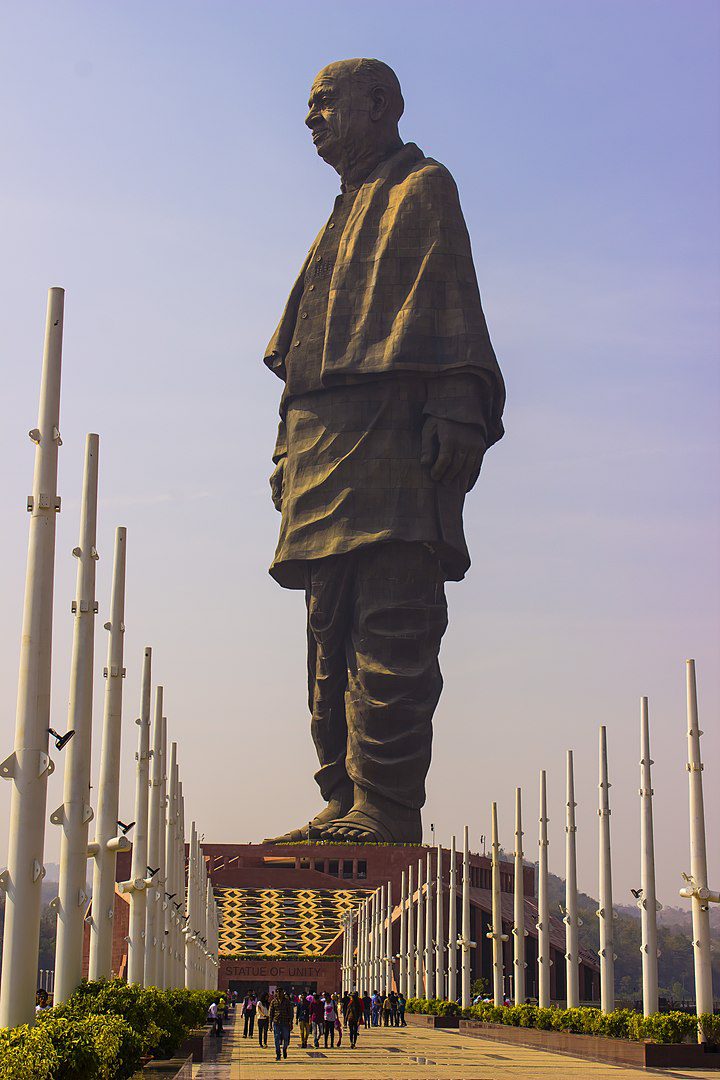
The Statue of Unity is the world’s tallest statue Photo by Snehrashmi Wikimedia
India is also home to the world’s tallest statue in the world, the statue of unity. Measuring 600ft (182m) in height, the Statue of Unity is currently the tallest in the world. The statue, which is a tribute to the independence leader Sardar Vallabhbhai Patel, is located in the western state of Gujarat, where Patel was born.
It is an homage paid to Sardar Vallabhbhai Patel also known as the ‘iron man of India’ for his inspirational leadership which served as the cornerstone of India’s integration as a unified nation. For comparison, this statue is almost twice as tall as the Statue of Liberty (305ft or 93m). It is made with more than 12,000 bronze panels and weighs about 67,000 tonnes.
34. The Amritsar Golden Temple serves free meals every day
The Amritsar Golden Temple is one of the most dazzling architectural monuments in India, and of the best places to be. It is also a site of generosity and compassion and is open to people of all religions and from walks of life who come to this place to either worship or eat the free food offered here.
A tradition started by Guru Nanak the first sheik of the Sikh people in 1481, the golden temple in Amritsar serves a simple vegetarian meal, often to over fifty thousand people every day. The Langar in this temple is perhaps the world’s largest free eatery.
35. India was the first country to refine and consume sugar
Did you know actually that India was the first place where sugar was extracted, refined, and used in cooking? Well, the answer here is yes although once people got a taste of the delicious stuff, sugar production quickly spread around the world.
Over the years since then throughout the middle ages, sugar was considered rare and expensive spice rather than transient tented sugars thought to be from Sanskrit meaning ground or candied sugar originally grit, grave.
36. Shampoo originated in India
Did you know that the word “shampoo” comes from the Sanskrit word “champion,” which means “to massage.”. A shampoo is a hair care product in the form of a viscous liquid, that is used for cleansing hair.
Ground herbs mixed with water were the very first forms of shampoo. Not until later, when the idea caught on were commercial bottles produced. Cleansing the hair and body massage during one’s daily bath was an indulgence of early colonial traders in India.
37. India is Famous for its Iconic Step Wells
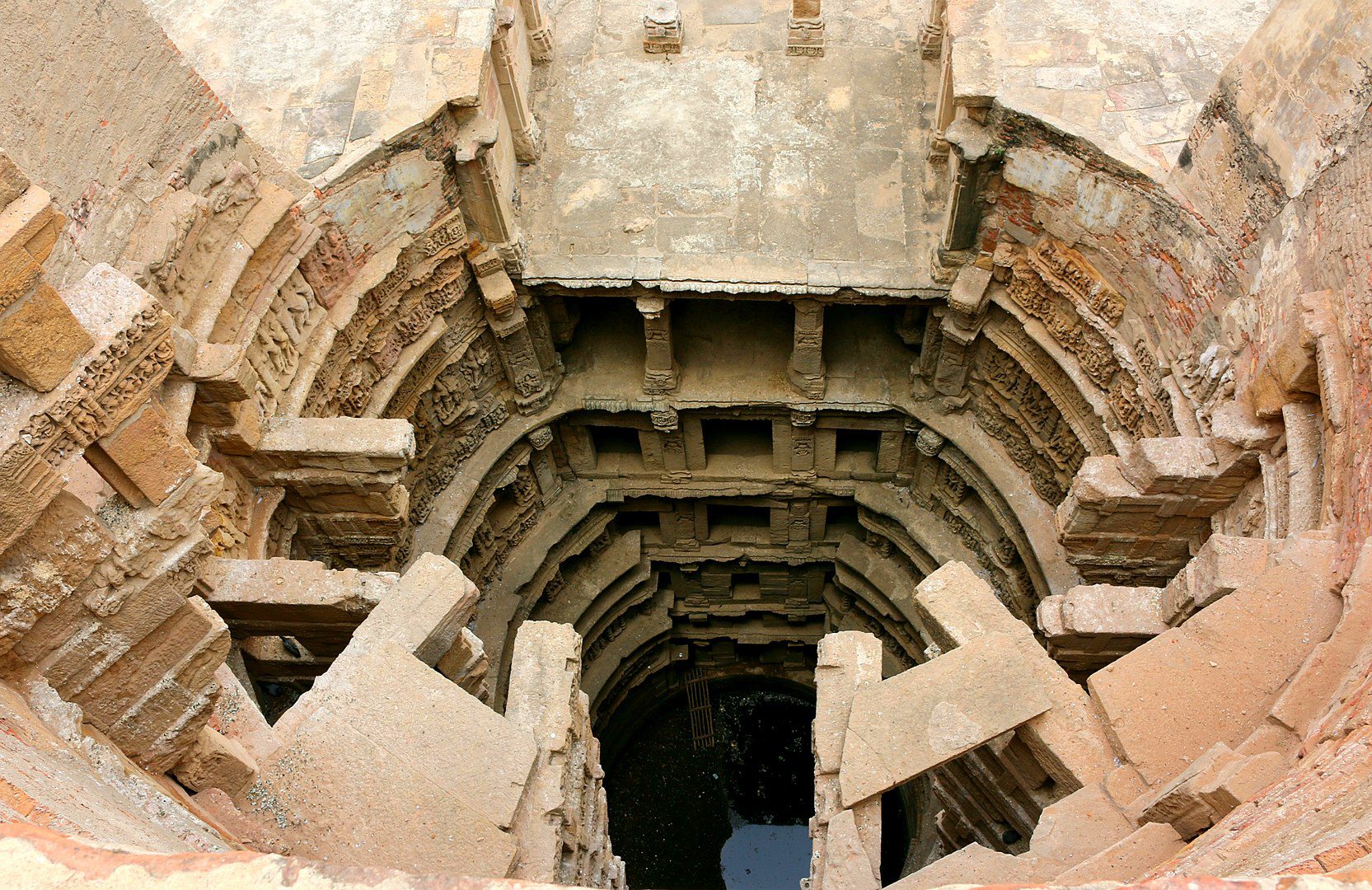
Step-wells in Gujarat Photo sourced from Wikimedia
India’s abandoned step-wells, known as vavs in Gujarat and baolis (or baoris) elsewhere in northern India, are an important part of its history and architecture. While information about them is scarce, they’re believed to have started appearing mostly between the 2nd and 4th centuries to supply water from the country’s deep-water tables.
Especially in the hot, dry states of northern India. Beyond their primary use, they were often used to provide shade, as temples, community centers, and layovers on trade routes. Among the most stunning step wells is the Rani ki Vav (the Queen’s Step Well), which is undoubtedly India’s most awe-inspiring step well.
38. The steel wires in the Bandra Worli Sea link could stretch around the world
One of the country’s other top facts is that the steel wires in the Bandra Worli Sea link could stretch around the world. Completed in 2010, the incredible Bandra Worli Sea link Bridge required 90,000 tons of cement to build.
To hold that all up, enormous steel cables – each with the ability to hold up to 900 tons of weight – were put in place along the bridge. It has been the most convenient route connecting 2 cities of Mumbai, Bandra in the western suburbs, and Worli in the southern suburbs respectively
39. Gandhi is one of India’s most famous icons

Mahatma-Gandhi Photo sourced from Wikimedia
Revered the world over for his nonviolent philosophy of passive resistance, Mohandas Karamchand Gandhi was known to his many followers as Mahatma, or “the great-souled one.” He was also commonly referred to as “Bapu,” which means father. In the years following World War I, he became the leading figure in India’s struggle to gain independence from Great Britain.
After Partition in 1947, he continued to work toward peace between Hindus and Muslims until his death, when he was fatally shot in Delhi in January 1948 by a Hindu fundamentalist. Gandhi’s face has appeared on all denominations of Indian Rupees printed since 1996.
Read more about him in Top 10 Facts about Gandhi
40. There’s a floating post office in India
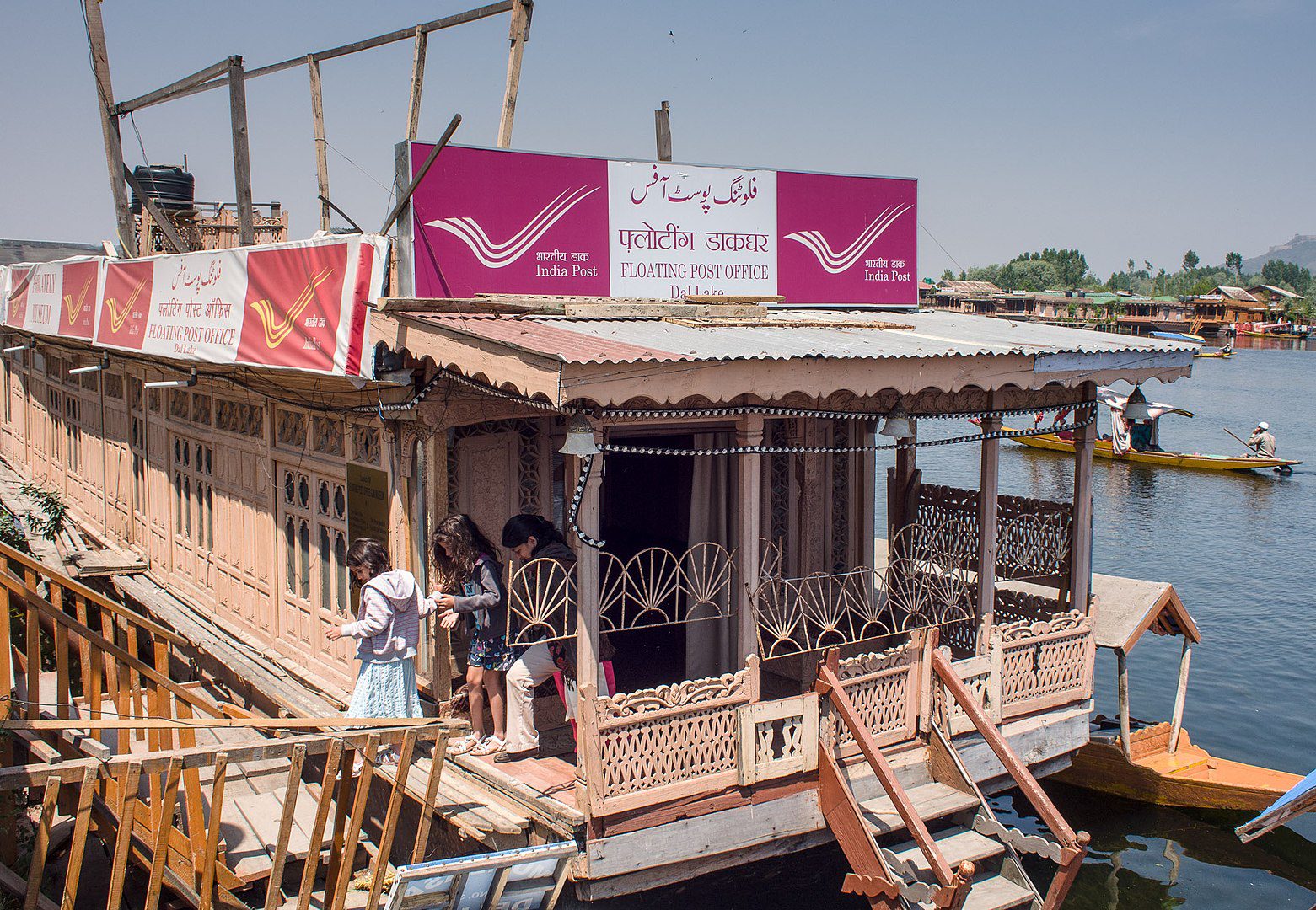
Floating Post Office, Dal Lake Photo sourced from Wikimedia
Not only does India have the largest network of postal services in the world, but it also has some very unique post offices, including one that floats on the water. Located in Dal Lake, Srinagar, the post office has begun to serve as a tourist destination for curious visitors who hope to photograph the unique site.
These amazing facts about India are just the tip of the iceberg; this country has so many surprises in store for travelers. There’s nothing quite like real-life experience, so if these fun facts about India have piqued your curiosity, get ready to have your mind blown when you travel there in person!
41. India is the world’s largest importer of major arms
Another top fact in this country is that it is the world’s largest importer of major arms. while the likes of Russia and France are some of India’s biggest suppliers of arms, accounting for 46%, 27%and 12% of the country’s imports in the last five years.
India’s share of global arms imports stood at 11% during 2017-2021 compared to 14% in the previous five-year period. Russian air-defense systems and cruise missiles are very much part of India’s arsenal, as are a range of other crucial systems that arm its three services.
42. India has the largest family in the world
The country also boasts to be the home to some of the world’s largest families. For example, the Zion-a (76) is believed to head the world’s largest family, with 38 wives and 89 children. Mizoram and his village of Baktawng Tlangnuam have become a major tourist attraction in the state because of the family.
This family goes into the Guinness book of Recordsthroughh the head of the family refused this title as he shunned publicity. There are many more big families in India and their population is growing greatly through this.
43. India’s railway is one of the top employers in the world

A train at Kanpur Central Railway Station, Kanpur, Uttar Pradesh, India Photo sourced from Wikimedia
Another fun fact about India is that its railway is one of the top employers in the world. it has more than 1.4 million employers who work day in and day out to ensure that passengers reach their destinations safely and on time. India’s state-owned railway operates a huge and extensive network that extends across the country for hundreds of thousands of miles and takes with them more than 23 million passengers each day.
44. The Indian sari has been used for more than 5000 years old
Perhaps one of the other funniest facts in our list is that the sari which is worn by most women in India is more than 5000 years old, having been first used around 2800-1800 BCE, which makes it one of the world’s earliest forms of clothing.
The sari consists of an un-stitched stretch of women’s fabric arranged over the body as a robe, with one end tied to the waist, while the other end rests over one shoulder as a stole. There are many various names and styles of sari manufacture and draping.
45. The highest cricket ground in the world is found here
Last but not least is that India is home to the highest cricket ground in the world which is pretty cool. Cahill cricket ground is located in Chail, Himachal Pradesh. It was built in 1893 by Singh Maharaja of Patiala who owned a summer retreat in Chail that the time the ground was developed.
The ground is also used as a polo ground today. The ground is also located at 2444 meters above sea level which makes it the highest cricket ground in the world. The ground is also surrounded by a forest and is mostly used by Chail military school.
Planning a trip to Paris ? Get ready !
These are Amazon’s best-selling travel products that you may need for coming to Paris.
Bookstore
- The best travel book : Rick Steves – Paris 2023 – Learn more here
- Fodor’s Paris 2024 – Learn more here
Travel Gear
- Venture Pal Lightweight Backpack – Learn more here
- Samsonite Winfield 2 28″ Luggage – Learn more here
- Swig Savvy’s Stainless Steel Insulated Water Bottle – Learn more here
Check Amazon’s best-seller list for the most popular travel accessories. We sometimes read this list just to find out what new travel products people are buying.








